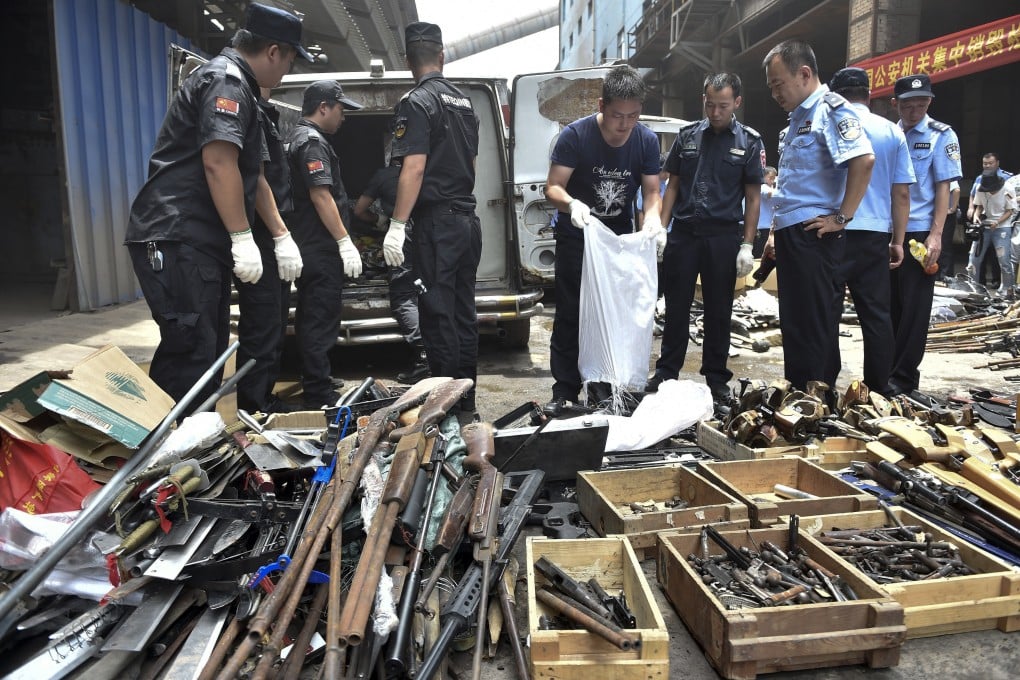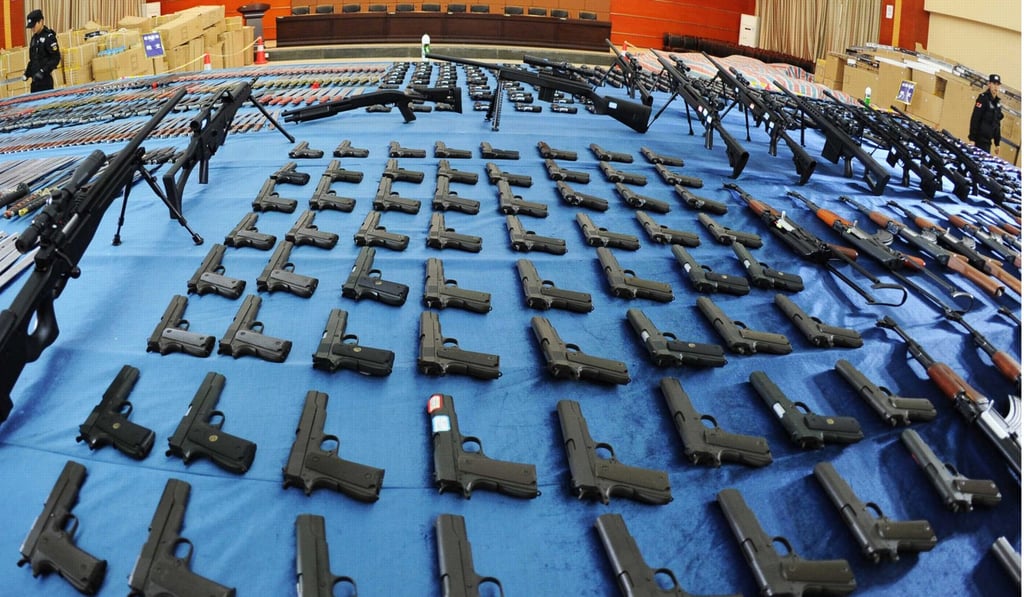China set to launch 100-day crackdown on illegal firearms, deadly or otherwise
- E-commerce platforms, courier companies in the cross hairs as public security ministry announces latest campaign to close distribution channels
- But lawyer says legal definitions must be reviewed to prevent owners of toy and replica weapons ending up behind bars

Despite already having some of the world’s strictest gun control laws, Beijing is about to embark on a nationwide campaign to round up illegal firearms as part of its preparations for a trouble-free celebration of the 70th anniversary of the founding of the People’s Republic of China in October.
The Ministry of Public Security said last week that the 100-day campaign would get under way at the end of the month, with its primary targets being e-commerce platforms that offer guns for sale and delivery firms that transport them around the country.
The authorities would “intensify monitoring of online activity, increase supervision of courier companies and cut off distribution channels”, deputy public security minister Sun Lijun said.
Private gun ownership is strictly prohibited in China and those who break the law can face up to seven years in prison. Despite that fact, the online market for illegal weapons is buoyant, with some vendors seeking to evade detection by offering firearms in kit form.

Sun, however, said that no stone would be left unturned in upholding and enforcing the law, which in recent years has been extended to include everything from air rifles to replica guns and even toy pistols.